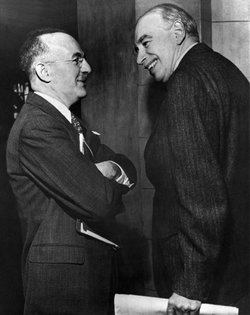
Macroeconomics is the branch of Economics that studies the overall aspects and workings of a national economy, such as output, income, unemployment, inflation or price levels, and the interrelationship among diverse economic sectors, developing, testing and applying models and theories about how the economy as a whole works, which are further used to predict consequences of certain events and direct the use of economic policies.
Macroeconomics looks at the big picture, attempting to examine and understand the causes of economic fluctuations, and ways to tame the economy as a whole so that it develops steadily and beneficially to society.
Macroeconomists are especially interested in the causes of economic growth over time, which falls in the subject matter of Macroeconomics. s
Modern macroeconomics is rather dynamic in that many schools present a diverse universe of beliefs, concepts and approaches for the same purpose. Though most of them are no more than similar interpretations of fundamentally the same principles, not colliding into but complementing each other. Major influential schools include:
- Keynesian school, or Keynesianism, is the originating school of modern Macroeconomics given birth by the renowned publication of The General Theory of Employment, Interest, and Money by John Maynard Keynes, stating that capitalist economy alone does not necessarily have a self-correcting mechanism to keep it on a healthy equilibrium. Rather, it is a mixed economy wherein both public and private sector should do their best to drive it on track.
- Monetarist school, is a school of economists who ignore many other factors such as governmental regulation but believe in the sole power of Money Supply, using it as the key to the control of business cycles, economic growth and inflation.
- Neo-keynesian school, an adapted version of Keynesian analysis combined with classical economics and modern economic theories to deal with emerging situations. Old Keynesian way is, in a sense, fell out of policy tools into an area of study due to its increasing incapabilities to explain events and resolve problems such as Stagflation.
- Neo-classical school
- Supply-side school, focusing on stimulating aggregate supply to promote economy thus contrasting Keynesian economics and demand-side school which on the other hand call for effective demand to do the same thing, is the belief that effective supply incentives such reduction in tax rates boost economic growth.





